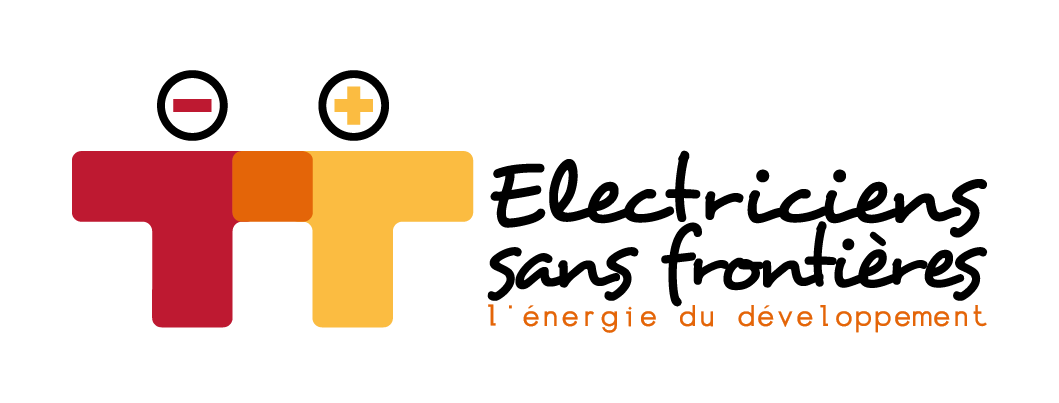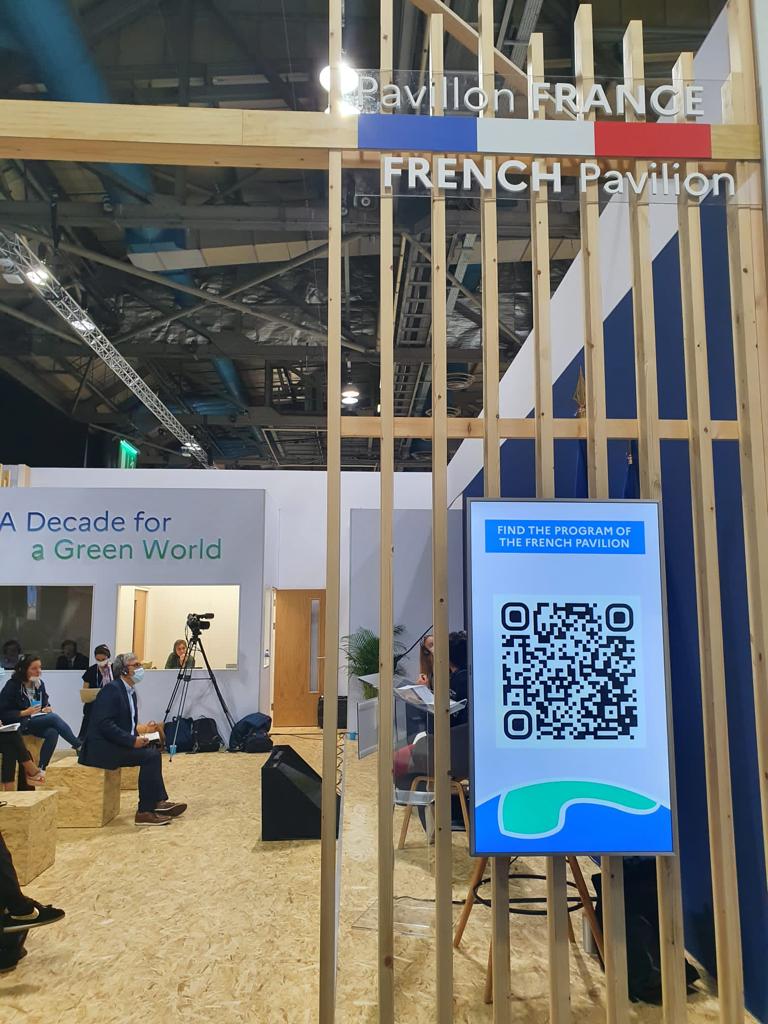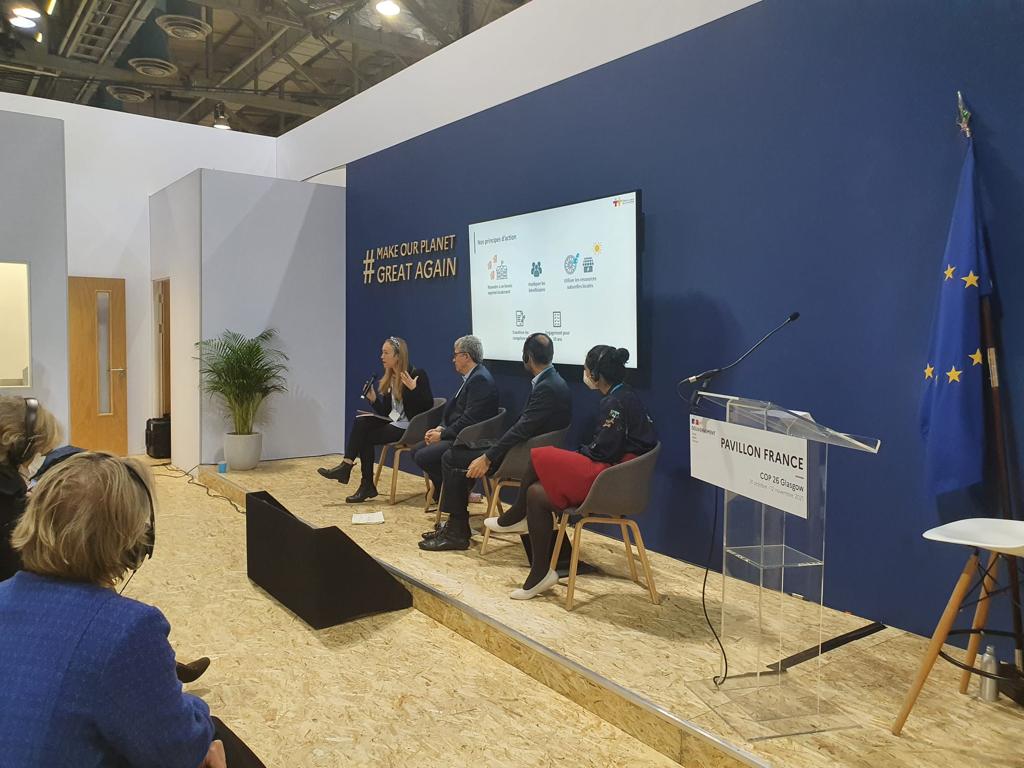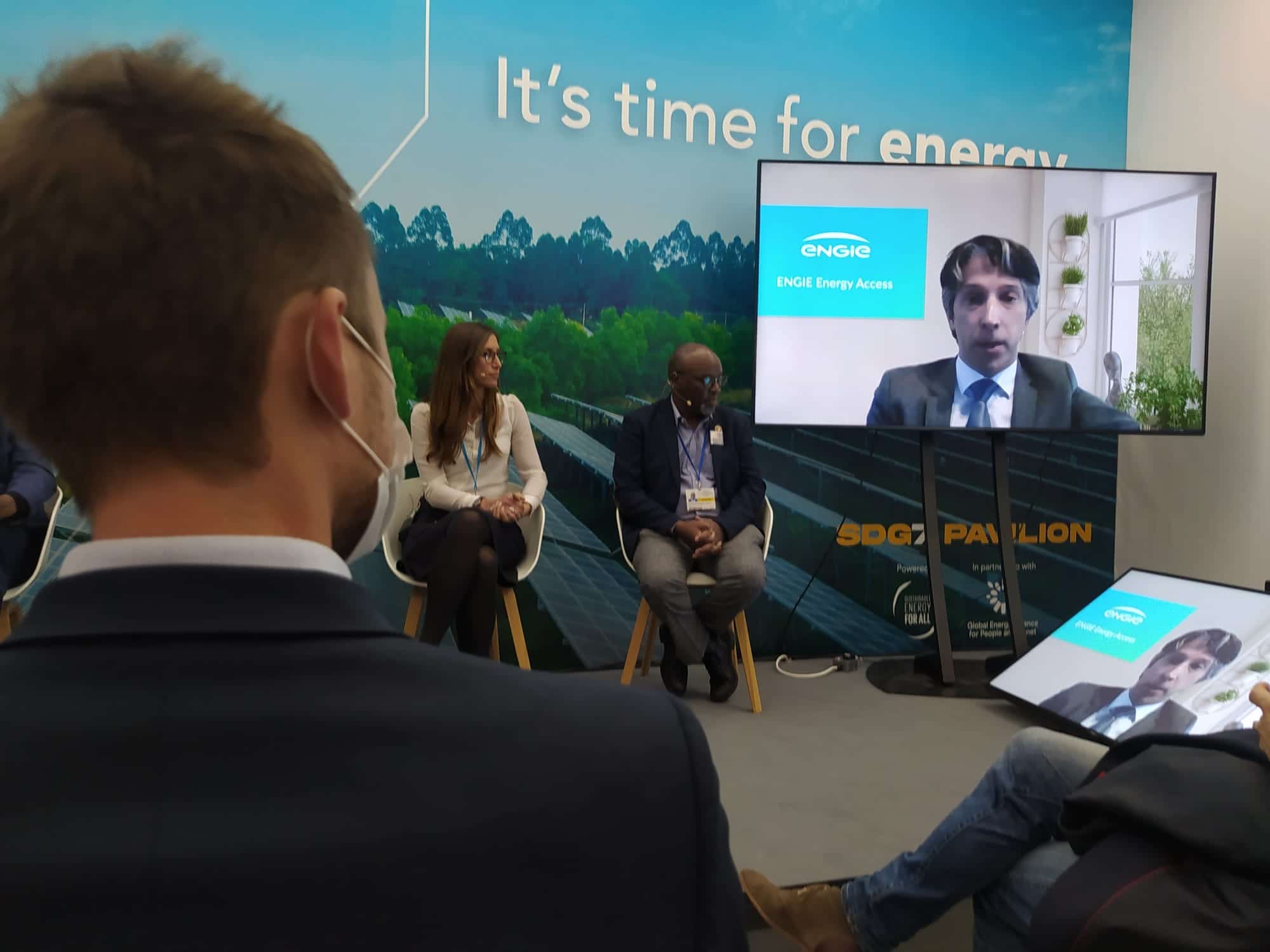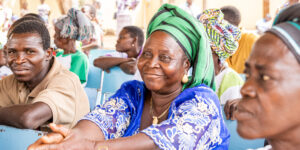After a wink in London Railway station “Thank you for travelling by train” on the train journey to Glasgow, the team representing our NGO, consisting of Tania Chauvin (Project Manager) and Alexandre Anjuere (General Delegate), went through interviews, meetings and conferences.
Here is a look back at our round table dedicated to examples of projects that improve access to energy for the poorest populations, while promoting their economic and human development and preserving the climate.
Our message was mainly based on the different tools and means used within our NGO to meet this double challenge. Below is a summary in two main points.
1/ Renewable energy to meet the electricity needs of isolated populations
The vast majority of Electricians dans frontières’ projects are modest in size, with an average of a few dozen KWp per installation. While this may not seem much, it proves that change can be made in a decentralized way, by and for isolated communities. Our projects seek first to address the following priority: to provide a solution to the energy needs of those who are currently deprived of it. We consider that access to electricity is an essential service and a precondition to a satisfactory access to health and education; whether it is to give birth in good conditions at night, to pump water in the dry season, or to study after dark.
For all these essential needs, decentralized renewable energies are a real solution. This is why most of the Electriciens sans frontières projects consist in installing photovoltaic panels associated to batteries on the roof of a school or a health care center, or installing small solar pumps to avoid depending on rainfall to grow vegetables. In the Sahel, where rainfall is already being impacted by climate change, this means contributing to the resilience and adaptation of the most vulnerable.
Our programs have an indirect decarbonization effect because they avoid the use of fossil fuels on a dalily basis by populations.
2/ Renewable energies to anticipate and demonstrate resilience
Electriciens sans frontières sometimes intervenes in areas that may seem less concerned by access to energy. However, these areas will reveal their fragility during crises, whether natural or economic, which will multiply with climate change.
An example of this is our intervention in Dominica, initiated as part of an emergency response to Hurricane Maria.
It is necessary to note that Dominica, while contributing to an extremely low extent to climate change, suffers the effects of it first, which is the case for many small island states. We are witnessing a multiplication of extreme climatic events, with important consequences. In 2017, Hurricane Maria affected more than 90% of the buildings on the island of 75,000 inhabitants. The centralized electrical network was cut for several weeks.
This disaster pushed the Prime Minister of Dominica to engage a policy of transformation to rebuild differently in the perspective of future climate events and thus to be more resilient to the effects of climate change. Electricians sans frontières was called upon in this framework.
We then designed a pilot project with the installation of wind-resistant photovoltaic panels on the roofs of 6 health centers, coupled with batteries allowing a 3-day autonomy. This technical solution allows the panels to be dismantled in complete safety so that they are not destroyed by the hurricane. This method also allows the centers to no longer depend solely on the network and to reduce their operating costs. This has a direct impact on electricity bills. Finally, this project increases the share of renewable energy in the island’s energy mix. This example shows how Electriciens sans frontières combines access to energy for basic needs, the fight against climate change in both mitigation and adaptation, and the improvement of the island’s resilience. More broadly, it also improves human and global health.
